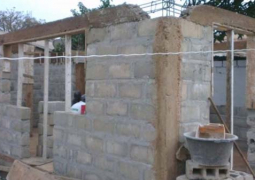
The
Though a statement from the ministry of Agriculture in Banjul Tuesday did not give a figure for the number of people needing food aid in the country, reliable official sources said a total of One million, thirty-five thousand people (out of the 1.7 million population) are in need.
The ministry’s statement said the impact of poor rains last year had been exacerbated by high world food prices, crippling household incomes in the West African state, which had ridden out previous food crises.
Aid agencies have warned that some nine million people across
“The post-harvest assessment of the 2011 farming season, which was characterized by below normal and poorly distributed rainfall, indicated a reduction in total crop production of more than 70 percent,” the ministry said in its statement.
“The poor harvests of rice, groundnuts, millets, maize and sorghum had left villages with just two months of food supplies, down from the usual four to six, at the end of the 2011 harvest,” it added.
The statement said the government could not match the needs to tackle the current food crisis and prepare farmers for the 2012 growing season, and appealed for $23 million in seeds, fertilisers and food aid.
The ministry revealed that the resources urgently needed to realize the above are well beyond what the national capability can guarantee, and thus our resort to asking for external help from our friends and development partners.
“National seeds requirement is put at 25, 000 metric tonnes valued at US$10 million. Fertilizer requirement is estimated at 37, 500 metric tonnes valued at US$8 million and food relief is estimated at 40, 000 metric tonnes valued at US$5 million,” the statement added.




